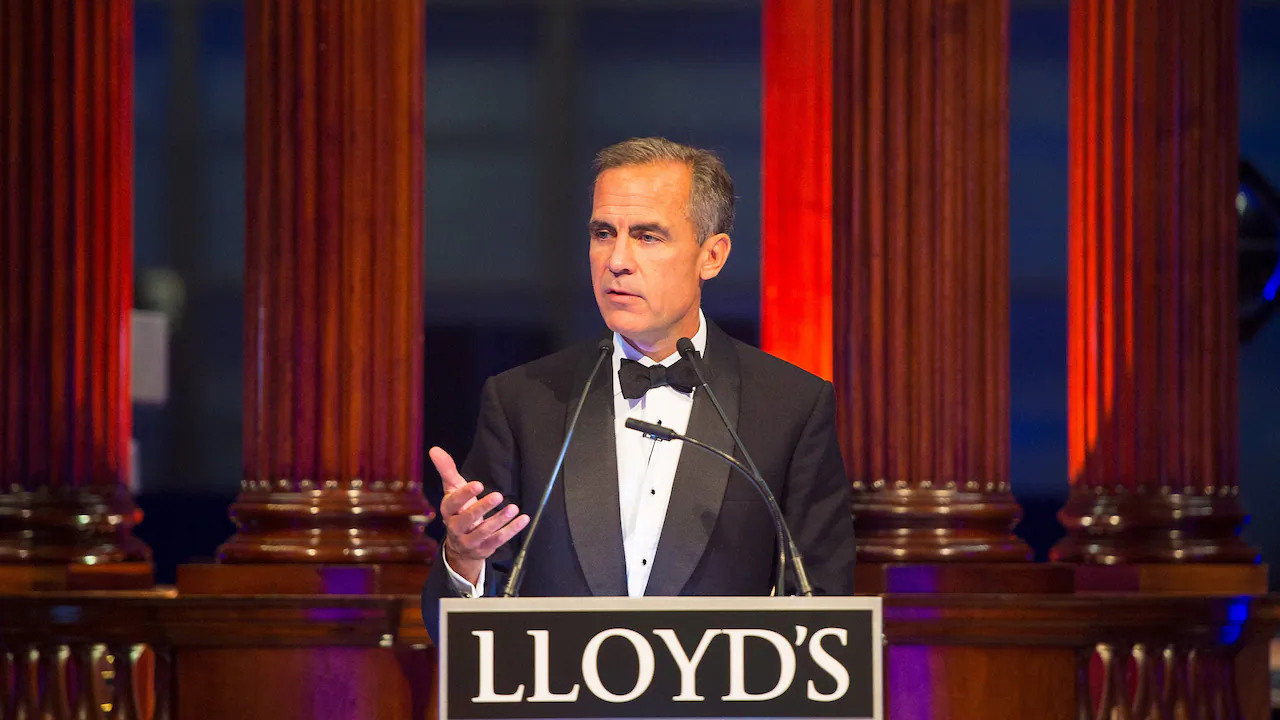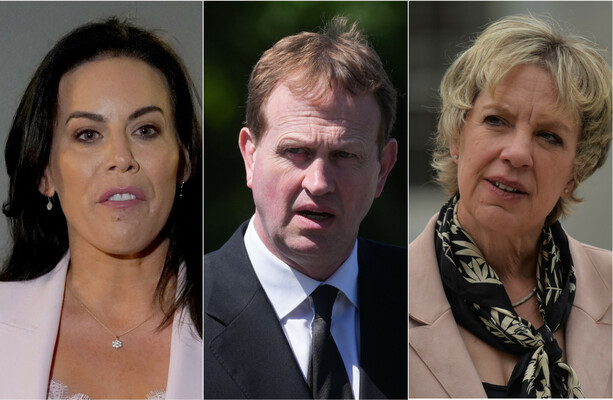Copyright walesonline

Watch your step at Paddington station for a mini stampede of London-based political journalists en route to Cardiff Central. Some of these Welsh politics virgins have been checking in on Welsh politics for the first time in.... well, forever. A rare UK interest in what might happen in the Senedd elections next May is welcome, even one driven less by a genuine interest in Wales and far more by what it might all mean for a Westminster election. This week’s Caerphilly by-election told us what we already knew – that Welsh politics is fundamentally, dramatically and historically realigning. The UK media wanted this to be all about Labour and Reform – a sideshow in Caerphilly where Labour wasn’t at the races in a different two-horse contest. The real story in Plaid Cymru’s remarkable and convincing victory is that Welsh politics is different. Clearly, there are significant national repercussions from the by-election result. In six months, we’ll be voting for a new, bigger Welsh Parliament, using a different, more proportional electoral system. It’s likely that we’ll see a new government too, the first not led by Labour since Wales gained a measure of self-government. Plaid has momentum now whilst there are questions over the limitations of Reform’s appeal. I’m averse to speculation about election results as it’s easy to see how it irritates. The ‘insiders’, ‘bl**dy academics’, ‘political anoraks’, ‘so-called experts’ (delete as appropriate) telling ordinary people what the election outcome is before they’ve even strolled to the polling station. However, in this case, it’s hard to see beyond an epoch-shattering political moment next May. A series of polls have shown the traditional party order turned on its head. The two main parties are no longer, well ‘main’. The Welsh Conservatives are languishing at 11-12% (an especially dangerous status in our new electoral system – more on that later). And, most strikingly, Welsh Labour is miles behind Plaid Cymru and Reform in third – a gap substantial enough to question whether it can be bridged in a matter of months. Caerphilly was catastrophic for Labour with just 11% of the vote on a decent turnout. The political realignment we are witnessing comes at the worst possible time, when the penalties electorally are exponentially worse. Dropping below around 12% of the vote share next May would mean a potential cliff face collapse in seats, potentially even down to single figures. Of course, there’s still a long way to go, but what an utter humiliation this would be for Welsh Labour. After more than a century of ‘winning’ elections in Wales while its sister parties in England and Scotland fell into opposition, Labour is on the brink of becoming an also ran. The almost automatic party of government in Wales could also face the curse of emerging as a ‘smaller’ party in the flawed closed list PR electoral system that we’ll use in May. Whose choice was this new electoral system? Not the Senedd Labour group we’re told, but Welsh Labour MPs also deny it was their choice. Party apparatchiks then? That’s for a future research project, but I think this exemplifies the battle for the soul of Welsh Labour, between those who seek to continue the successful strategy of soft nationalism and a strong Welsh identity, and those who are essentially dismissive and scornful of devolution. When the account of this bonkers political decision is written, the words of Benjamin Franklin come to mind: “Diligence is the mother of good luck.” Not only would Single Transferable Vote have delivered more seats for Labour; it would have contained Reform UK, a party that by its nature divides making it hardly anyone’s second or third preference. Amongst the many things that have gone horribly wrong for Welsh Labour is the much-vaunted partnership of power between a UK Labour government and a Welsh Labour government. It’s hard to see what cards remain for First Minister Eluned Morgan to play now that the famed HS2 ‘consequential’ amounted to being risibly shortchanged by billions, with Leeds’ new station alone getting more than half of what Wales’ whole rail network received. No movement on justice devolution – not even of youth justice – and Welsh Labour MPs voting against their own party line in rejecting the devolution of the Crown Estate. Instead, the Deputy First Minister announces the establishment of an expert group to consider how best to devolve the Crown Estate. Long grass, etc... Without any serious transactional benefits for Wales, this has instead become a toxic relationship. It has left Morgan looking powerless and, at times, desperate. It is small consolation that only Darren Millar, Keir Starmer and Kemi Badenoch are more unpopular than she is. Wales is Nigel Farage’s and Reform’s focus , we’re told. But, anyone flattered at Farage’s presence in Caerphilly and his talking up of the Senedd elections needs to wake up and smell the coffee. Wales is entirely transactional for Reform. A dry run, a handy laboratory (and a likely return to the Senedd for some of the same people elected as UKIP members previously), ahead of a proper go at the ‘real’ seat of power in London a few years later. Nevertheless, Reform can still win in Wales. We offer a fertile terrain especially with a century-long but fast unravelling allegiance to a jaded and increasingly-divided Labour party. This alongside an economy that competes in a reverse beauty contest with the south east of Romania and Severn Tsentralen in Bulgaria. Most of Reform’s support so far has haemorrhaged from the Conservatives (a quarter of Conservative voters have switched). However, the Caerphilly by-election indicated that Reform also has the potential to capture some Labour voters where it is seen as a potential challenger to the establishment. But the real story is that the by-election turnout suggests a problem for Reform in converting support in the polls to actual trips to the polling station. Its performance next May will depend on chasing registrations, less on social media noise. Reform might well prefer opposition in the Senedd to being in charge. It’d set the party up nicely for a UK general election without having to contend with managing public expectations framed by Wales’ financial realities. Reform’s narrative might have some appeal: ‘Freeze immigration and stop the boats. Restore law and order. Repair our broken public services’ but the policy substance is deliberately missing. But let’s see the meat on the bones. I’d be interested to see where £10m per annum savings from the Nation of Sanctuary policy (a measly 0.05% of the Welsh budget) gets a Reform government. Meanwhile, the official opposition in the Bay, the Conservatives won 2%, yes 2% of the vote in Caerphilly. A lost deposit and another blow following last year’s catastrophic general election and the failure of Kemi Badenoch to establish herself as a credible challenger. Exacerbating the UK leadership picture is a divided Welsh party with little on offer by way of an alternative governing programme. Fundamentally, the Welsh Conservatives are hindered by a poorly concealed, but deep-rooted, animosity to devolution still present amongst the bulk of the Tory faithful. A legitimate position to hold, but counter to the prevailing public mood in Wales and making it impossible to mount a serious attempt at winning. Furthermore, there’s little sign of any attempt to resurrect the Nick Bourne years of constructive centre-right Welshness as the party instead flirts with out-reforming Reform. The momentum and energy is with Plaid after that historic and momentous by-election win. Breakthroughs in the solid Labour valleys areas are very rare . Plaid will now need to show this is not a one-off by establishing itself as the natural voice of the left in the face of Welsh Labour’s collapse. It shouldn’t be that hard as we know Plaid and Labour voters rather like each other. Plaid has topped the last two You Gov/ITV Cymru Wales/Cardiff University polls without doing that much in truth. Caerphilly saw it best placed to capture both the anti-Labour and anti-Reform vote. So, Plaid might even benefit from keeping its head down for the next six months. It’s not inconceivable that a buoyant Plaid could retain its pole poll position by capitalising upon others’ failings. In theory, it would then be ready to inject some energy and zap should it be able to form a government (minority or otherwise) post May. Notwithstanding some big announcements on child care especially, could it be that Rhun ap Iorwerth can afford to campaign in prose and then govern more poetically? Labour hasn’t responded well to the simultaneous pincer attacks from right and left. It might be easier to attack Reform and ignore Plaid, but hardly sensible when most Labour votes in Wales are draining to Plaid. Labour’s conference in Liverpool had a go at resurrecting the bogeyman of Plaid and independence. The problem with this is that Plaid’s tactics are to avoid saying anything about indy in this election unless it has to. Plus, virtually everyone aged under 45 is pretty relaxed about indy, even if they are not passionate supporters. Labour switchers to Plaid are a long way from seeing Rhun ap Iorwerth as the ‘different poison, same bottle’ as Nigel Farage. So, the 2026 Senedd election will be the most competitive election yet. That’s something to celebrate as the elections have been downright boring since the first when Plaid shone in the southern valleys and then meekly faded. Will the Caerphilly result be replicated nationally? The narrative for that election will undoubtedly be change. But how change is interpreted by voters is the question no one yet knows the answer to. Plaid’s slogan of ‘new leadership for Wales’ will be sorely tested if it tries to govern with Labour’s help. A Reform government would be a seismic change but how big a leap in the dark are voters prepared to make in a national election? Polarisation and degree of party competition are factors in increasing turnout so we may see turnout pass the 50% watermark for the first time, as it did in Caerphilly. Even so, that’s less something to boast about and more a sad reflection of the disengagement and disinterest shown by many to our fledgling democracy. Whatever the outcome, the election might well create more sound and fury than action to entrench power here that would deliver practical benefits for the Welsh people. There is an existential irony when the Senedd election will be a battle between a party that ultimately seeks independence and a party that might well look to abolish the very institution that provides it with a proper platform. * Laura McAllister is a sports-mad academic from Bridgend. She is Professor at Cardiff University’s Wales Governance Centre and former captain of Wales Women’s international football team.



